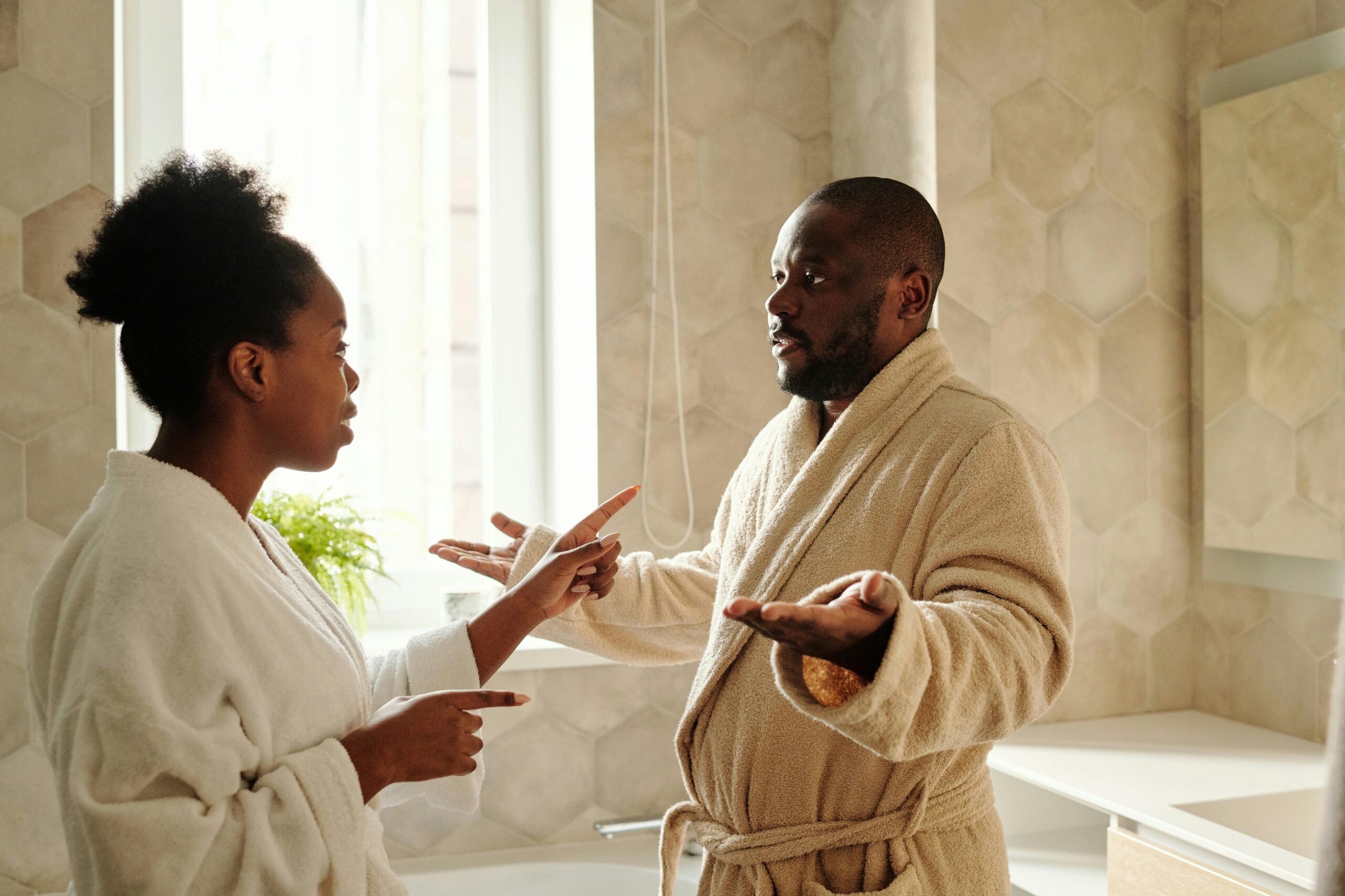Features
Rita Chidinma: How Do Arguments Start Between Couples?

It started with toothpaste. Or maybe the laundry. By now, neither of them could remember. Tunde slammed the wardrobe door shut, muttering something under his breath. Amaka turned from the mirror, eyes narrowing. “So because I said you left the toothpaste open, you’ll now act like I insulted your ancestors?”
He shot back, “It’s not what you said. It’s how you said it.”
“Ah, here we go again,” she exhaled.
The air thickened. They both went quiet. They’d promised themselves it wouldn’t get this far again, yet somehow, it always did. At first, their friends thought they were just being dramatic. Every couple fights, right? But if you listened closely, you’d realise it wasn’t about toothpaste, or socks, or who forgot to take the trash out. They always seemed to be fighting over different things, but the arguments were always the same.
Slowly, they started withdrawing from each other. Tunde had grown up in a house where volume meant survival. If you wanted to be heard, you had to speak louder than everyone else. For him, raising his voice wasn’t disrespect; it was proof he cared or mattered.
But it was different for Amaka. She grew up in a home where arguments were hurricanes. So every time Tunde got loud, her body went into defence mode. She would retreat, cross her arms, and emotionally check out. And when she did, Tunde felt ignored and unwanted, the same way he’d felt as a boy when no one listened. They didn’t know it yet, but they were dancing to music they didn’t compose, a rhythm they learned long before they met each other.
That’s the thing about marriage: it’s the mirror that shows you the patterns you didn’t know you had. You don’t notice them until someone presses the same old button in a brand-new way. Most couples think they’re arguing about who’s right or wrong. But underneath, they’re reacting to what feels familiar.
The tone, the silence, the defensiveness, all echo from the past. Old emotions wearing new costumes. That’s why the fights sound the same. Different day. Same script. Same ending.
Amaka once told a friend, half-jokingly, “We need subtitles when we fight. He’s arguing about one thing, and I’m arguing about another.” But she was right. He was arguing to be heard. She was arguing to feel safe. Both valid needs, just lost in translation.
If you find yourself in a similar situation to Tunde and Amaka, healing starts the moment one person notices the loop. When someone says, “Wait, we’ve been here before. Let’s pause.” That pause can save hours of pain. It doesn’t fix everything overnight, but it slows the pattern long enough to rewrite it. Because love isn’t proven by who wins the argument, it’s proven by who dares to respond differently when everything in them wants to react the same way.
Maybe your own “toothpaste fight” isn’t really about toothpaste either. Maybe it’s about an unhealed memory showing up in a familiar scene, waiting to be noticed, understood, and finally healed.
Patterns don’t break on their own. They break when love becomes patient enough to stop rehearsing the wound and start creating a new rhythm. Every marriage tells a story. But the healthiest ones are written by two people willing to edit the parts that no longer serve them.
***
Featured Image by Diva Plavalaguna for Pexels.
























